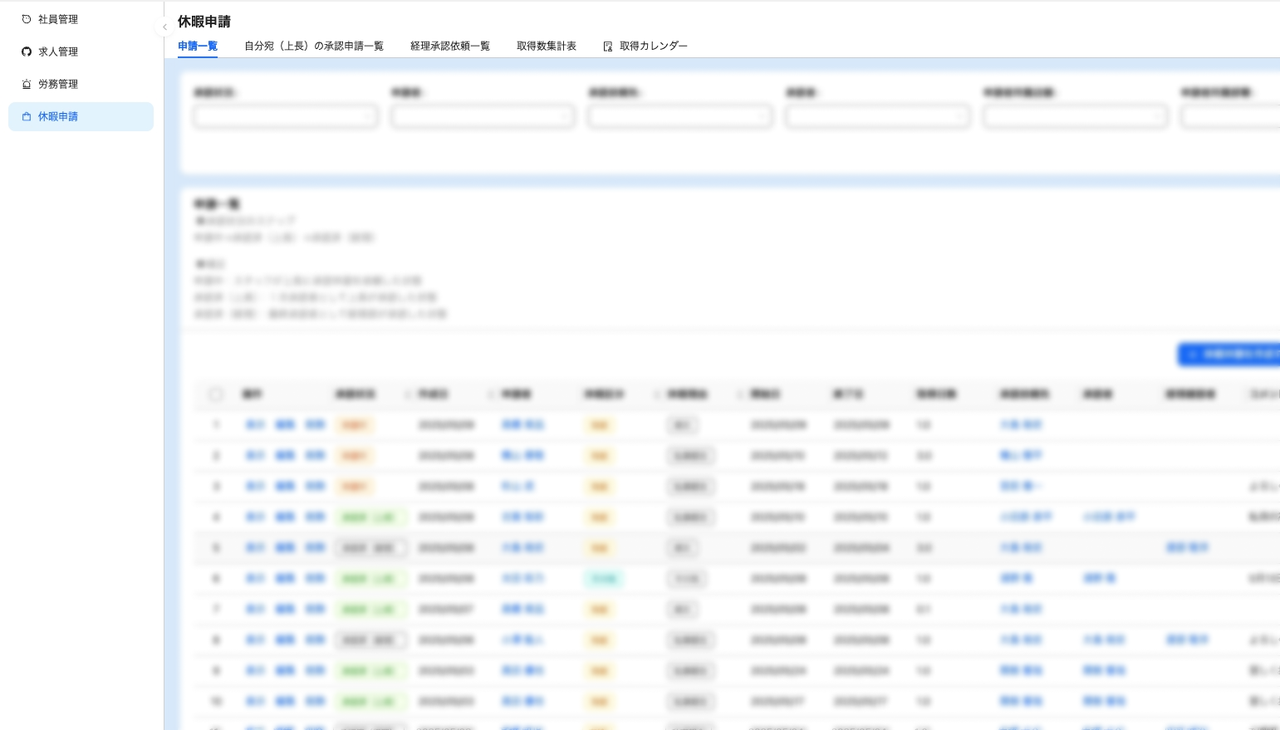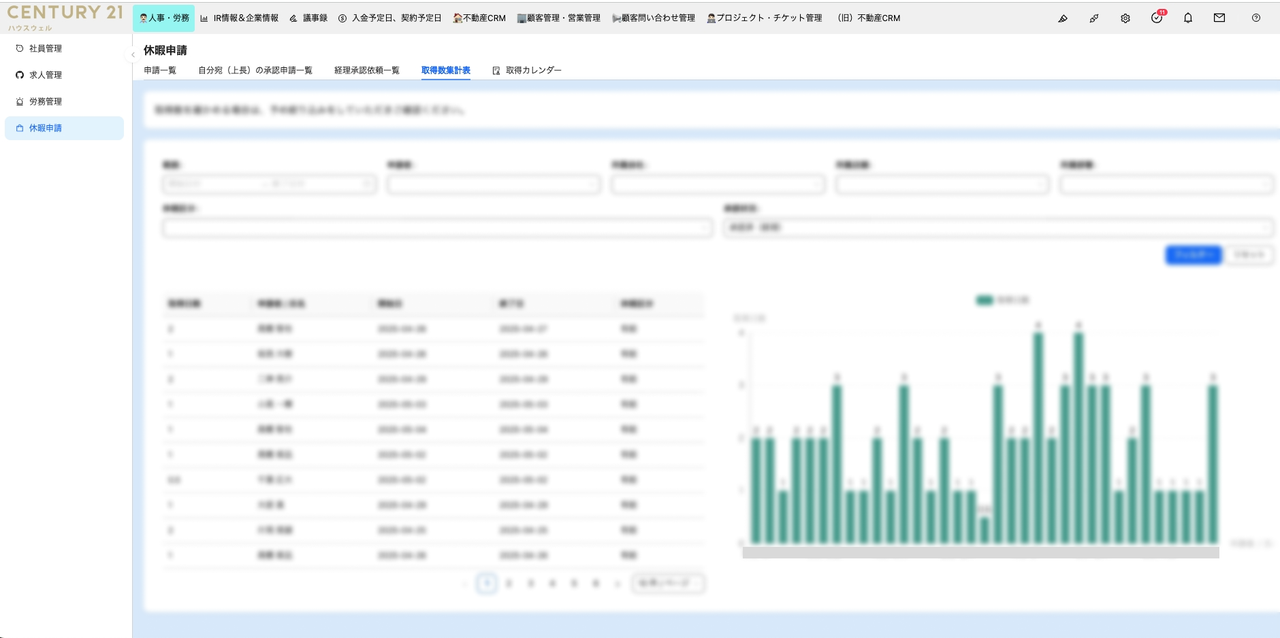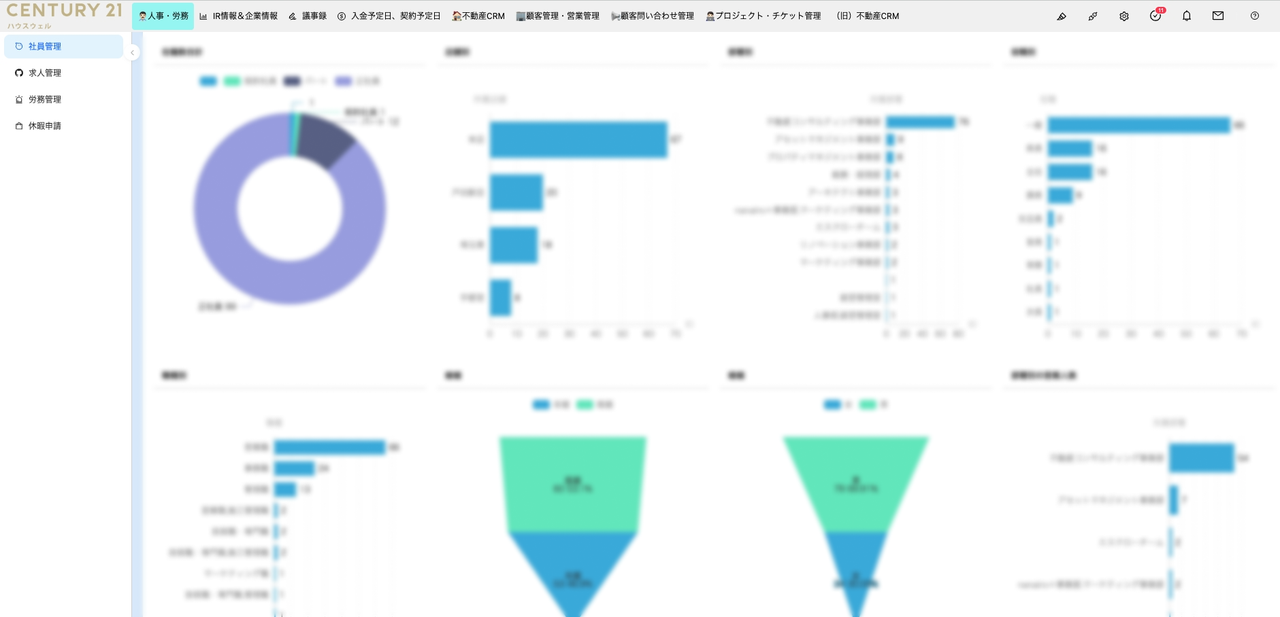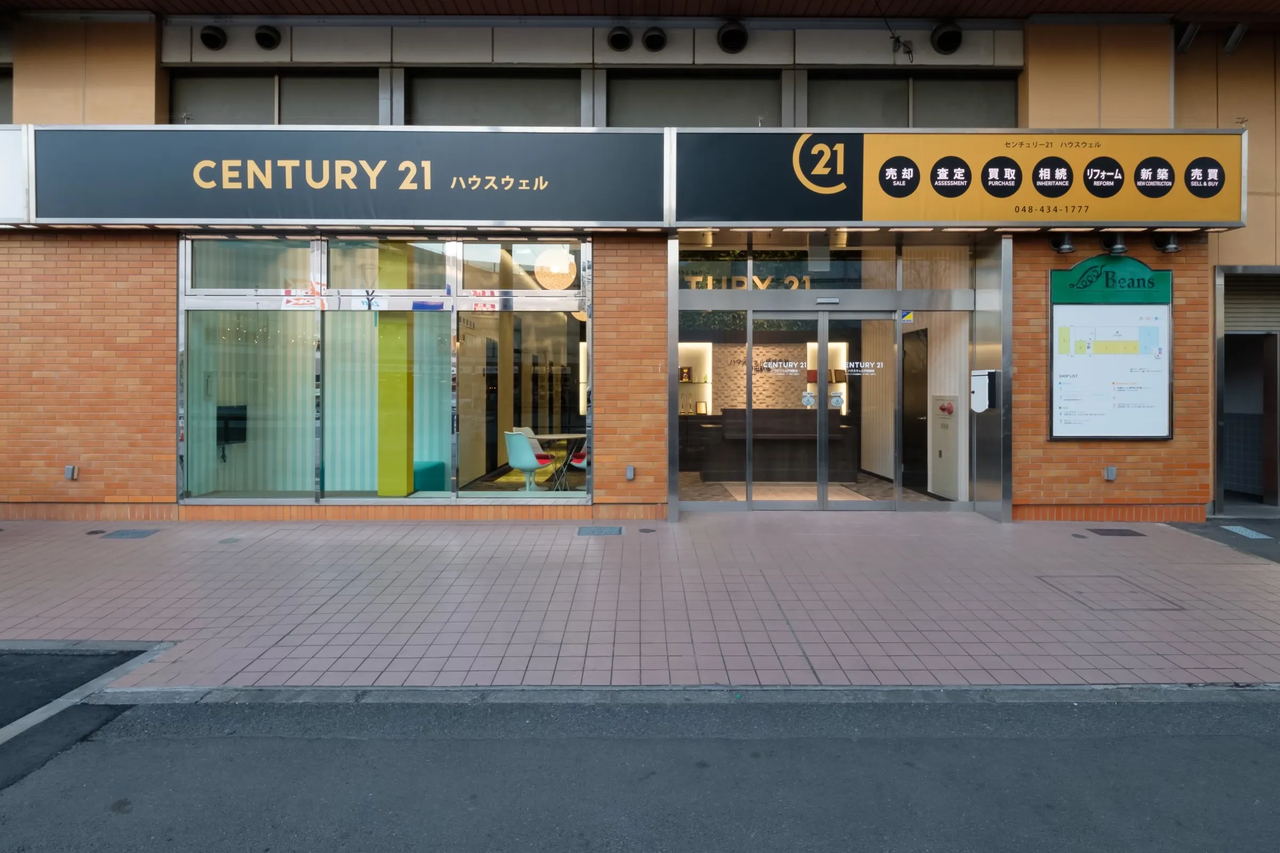Introduction
They had options like Salesforce and Kintone. So why did this leader in Japan’s real estate industry ultimately choose an open-source platform—NocoBase?
Who is HouseWell?
In Japan, Century 21 is a household name. Since it entered the Japanese market in 1983, Century 21 has opened nearly a thousand stores across the country, becoming a leading brand in Japan’s real estate agency industry.
Within this huge franchise network, one company’s performance really stands out. For years, it has consistently been among the top performers in Century 21 Japan, making it one of the most respected and influential franchisees. That company is HouseWell.
Based in Saitama, HouseWell has a very diverse business model. It covers a wide range of areas, including property sales and purchases, rental management, renovations and construction, insurance consulting, and IT services.
HR: The Missing Piece in HouseWell’s Digital Puzzle
HouseWell has grown fast—and so has its team, now reaching over 110 employees.
While the company had already gone digital in many areas—using Salesforce for customer data and business workflows—their HR and internal admin processes told a different story. Most of it still ran on paper forms and spreadsheets.
Take leave requests, for example. About 30 are submitted each month, but the process still involves printing, signing, and passing papers between departments. Delays, lost forms, and missed details were common—driving up costs and frustrating staff.
Managing HR data—from team structures to job changes and annual hiring plans—was no better. Info was scattered across files, with no clear system to track or analyze it. That lack of visibility was slowing down decisions and weakening management efficiency.
As the business expanded, it became clear that CRM alone couldn’t cover it all. HR needed a digital upgrade too.
So HouseWell launched a deep search for a system that could work alongside their existing tools—while staying flexible for the road ahead.
A Carefully Considered Choice
HouseWell had three main options on the table, each with its own strengths:
- Continue with Salesforce: Salesforce is the world’s top CRM. It’s feature-rich, uses mature technology, has a strong ecosystem, and boasts many success stories in real estate.
- Adopt Kintone, a low-code platform: Kintone is Japan’s leading low-code platform. It’s simple to use, quick to deploy, and very well-known with a large market share among Japanese companies.
- Choose open-source NocoBase: As an open-source no-code platform, NocoBase offers highly flexible data modeling and UI customization. It also supports on-premise deployment and a one-time purchase model.
Before making a final decision, the team did a deep dive comparison of these three options:
1. Salesforce: Powerful but Limited in Scope
Salesforce is widely recognized as a powerful tool in the real estate industry. It offers a rich set of CRM features, standardized processes, and numerous third-party integrations — all well-suited to large enterprises seeking customer management, data analysis, and sales automation.
However, during a deeper evaluation, the HouseWell team encountered several practical challenges:
- Cost Concerns: Salesforce was mainly used by the sales and investment teams, while other departments had little need for CRM functions. To support the back-office operations targeted in this project, licenses would have to be purchased for users who do not actually need CRM features, significantly increasing overall costs.
- Limited Customization: Although feature-rich, Salesforce’s interface and process customization options are relatively limited in practice, making it difficult to precisely adapt the system to the specific needs of HouseWell’s diverse business areas.
2.Kintone: Easy to Use, but Lacks Flexibility
As a homegrown Japanese platform, Kintone has clear advantages in ease of use, operation, and quickly launching new processes. Many small and medium-sized businesses are fond of it. HouseWell initially had high hopes, but a deeper look revealed:
- Modules Too Rigid: Kintone’s low-code model allows for fast deployment of business processes. However, its system modules are quite standardized, offering limited room for personalization. This made it difficult to meet the precise needs of complex business scenarios.
- Limited Scalability: HouseWell planned to integrate its CRM, HR systems, and administrative workflows later on. Kintone’s closed architecture and limited API capabilities proved to be a drawback, unable to support their long-term strategy.
3.NocoBase: Both Powerful and Flexible
Initially, NocoBase was just another option on their evaluation list. But as the comparison deepened, it increasingly showed its strong flexibility and control.
- Highly flexible data modeling and interface design capabilities, which could almost perfectly match HouseWell’s business needs.
- A one-time purchase model, meaning no ongoing high subscription fees, keeping overall costs manageable.
- Strong API integration capabilities, allowing seamless connection with existing systems like Salesforce and providing room for future system integrations.
- Completely open-source, making deep customization and further development easier. This also provides a technical foundation for potentially standardizing the system for external use later.
After thorough functional testing and cost evaluation, the team concluded that NocoBase is not only highly flexible in terms of functionality but also excels in openness and scalability — making it a system that can evolve and grow alongside the company.
After careful consideration, HouseWell ultimately chose NocoBase.
From Decision to Go-Live: How Did NocoBase Change Things?
Once they decided on NocoBase, the HouseWell team quickly got to work on implementation.
Phase One: Quickly Setting Up an Admin and HR System
As their first project, HouseWell started by moving their paper-based and inefficient HR and administrative processes onto the NocoBase system:
- Fully digitizing the leave request process
Previously, about 30 leave requests each month had to be passed around as paper copies within the company. With NocoBase, employees simply submit requests via an online form. Approvers get instant notifications and can approve them online. The whole process is smooth and straightforward, greatly reducing human error and lost information. Once the system was live, this frequent process became almost entirely paperless right away, leading to a clear boost in management efficiency.


- Clearer visibility of HR information
Using NocoBase’s flexible data modeling and customization features, HouseWell quickly built modules for things like employee organizational structure, recruitment channels, and HR statistics. The HR department can now see real-time hiring status for each department and how staff are distributed across different roles. The company’s overall HR picture became much clearer.
Compared to managing information through scattered spreadsheets and emails before, the efficiency gains were substantial.

Phase Two: System Integration and Real Estate Management Package Development
Before adopting NocoBase, HouseWell was already using Salesforce for customer management, with all customer details and transaction records stored there. As they continued using NocoBase, they gradually realized that it was not only suitable for flexible HR management but also fully capable of supporting CRM system development.
The technical team quickly started working on system integration:
- By leveraging NocoBase’s powerful API capabilities, they synchronized existing customer data from Salesforce, enabling seamless data sharing. This efficient integration allowed the team to access both customer information and internal business data in one place, avoiding duplicate data entry and improving data consistency.
- Using NocoBase’s customizable data models and page layouts, HouseWell is now developing a new real estate management solution tailored for the industry, built upon their expertise in customer management. (Planned for release soon)
Through this process, NocoBase evolved from just a “supplementary tool” into the core platform for HouseWell to create a unified business system.
Real Feedback After Implementation
After implementing NocoBase, the HouseWell team shared clear feedback:
- The system’s flexibility and UI customization met their expectations perfectly.
- The API integration capabilities exceeded their expectations, making data integration smoother.
- Overall costs were significantly reduced, making it much more economical for long-term use.
- The NocoBase support team was very responsive, and any issues they encountered were resolved quickly.
Bigger Ambitions: From System User to Solution Provider
HouseWell isn’t just stopping at upgrading its own internal systems. Drawing on their deep experience in real estate, they plan to use NocoBase to create standardized information management systems for the industry. They then aim to offer these as replicable solutions to other businesses.
Thanks to NocoBase’s open-source nature and flexible one-time purchase model, HouseWell can freely customize and develop it further. This allows them to perfectly tailor solutions to the specific needs of various clients in the real estate industry.
This strategic move is transforming HouseWell from simply a user of internal systems into a solution provider for the entire real estate industry.
This not only helps them quickly recoup their system development costs but also opens up new revenue streams for the company, multiplying the value of their IT investment.
Conclusion
HouseWell’s choice of NocoBase over Salesforce or Kintone was far more than a simple software decision — it was a precise, forward-looking strategic move:
- From high long-term costs to a flexible and cost-effective one-time purchase model.
- From rigid functional modules to a highly customizable open architecture.
- From being a system user to becoming a developer and provider of industry solutions.
HouseWell’s success story shows us that true digital transformation lies in finding a solution that truly aligns with your business needs and future strategy.
We hope HouseWell’s story inspires other businesses.
Related reading:
- How Second-Brain built an AI system for financial institutions with NocoBase
- How the No.1 AI Voice Recorder Brand Built Its Internal Systems
- Beyond Spreadsheets: Classmethod’s Employee Data Management with NocoBase
- How One Furniture Factory Built Its Own ERP—No Coding Needed
- From Designer to Builder: L&A’s Digital Transformation with NocoBase
- How KIGLAND Scaled Custom Anime Mask Production with Open-Source Tools

